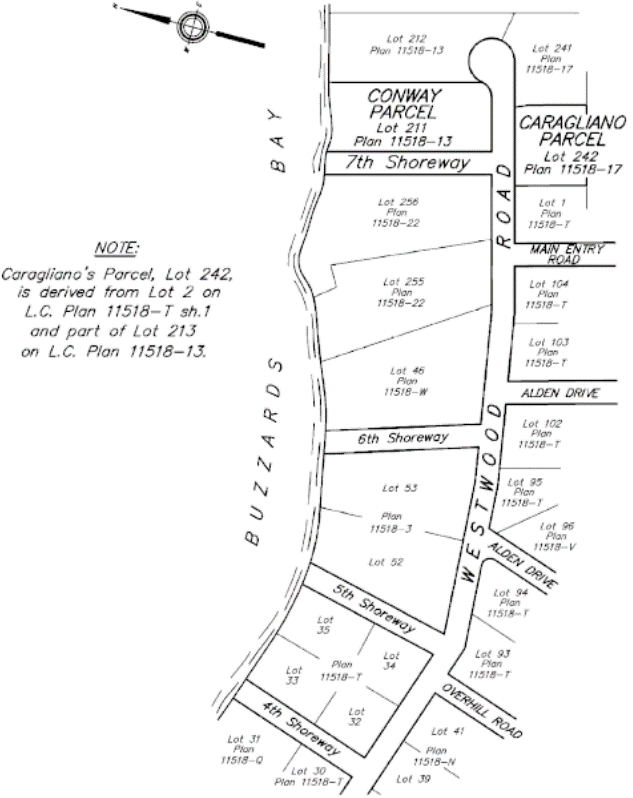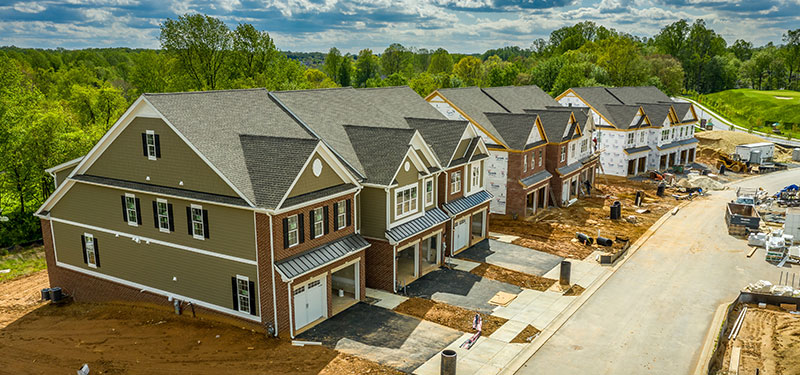The Derelict Fee Statute, G.L. c. 183, § 58, was initially enacted in 1971. It provides, in relevant part, that “Every instrument passing title to real estate abutting a way, whether public or private … shall be construed to include any fee interest of the grantor in such way, … unless … the instrument evidences a different intent by an express exception or reservation.” G.L. c. 183, § 58. The purpose of the Derelict Fee Statute is to “quiet title to sundry narrow strips of land.” While there are myriad circumstances in which the Derelict Fee Statute can be applied, a typical scenario would be one in which a developer of a subdivision created lots abutting a subdivision way, conveying each of the lots on the way, without referencing any interest in the way. As a practical matter, without the Derelict Fee Statute, ownership of the fee would be in a developer that, frequently, quickly disappeared following its sale of the lots. By operation of the Derelict Fee Statute, the abutting lot owners would acquire title to the way – typically to the center line of the way, though such interest may extend across the entire width of the way dependent upon the circumstances. As land use practitioners, we frequently are called upon to assess interests in ways and the applicability of the Derelict Fee Statute.
The Caraglianos’ easement amounts to a right of way over 7th Shoreway. Thus, the Court concluded that the easement rights did not include a right to sit, picnic or undertake similar activity.
On June 29, 2023, the Massachusetts Appeals Court issued a decision in Conway v. Caragliano, Appeals Court No. 22-P-159, 2023 WL 4240431 (2023). The case arises out of a dispute between two neighboring property owners in Falmouth – the Conways, whose lot has direct frontage on Buzzards Bay, and the Caraglianos, whose lot is located across the street from the Conways’ property. The dispute principally concerned the ownership and easement rights in a right of way, known as 7th Shoreway, which forms the western property boundary of the Conways’ lot. The Appendix to the Appeals Court’s decision is included below and is helpful in orienting the properties.
The dispute arose because the Conways had performed significant work in 7th Shoreway, which limited the Caraglianos’ ability to use the way to access Buzzards Bay. Specifically, the Conways regraded the way, leaving only an 8 ft. to 10 ft. grassy strip, on which water built-up due to the installation of an irrigation system. The Conways installed large stones, planted bushes, and reconfigured their driveway in a manner that greatly impinged the historic use of the way by the Caraglianos. The Caraglianos’ historic use included walking to and from the beach and ocean, fishing, transporting small water vessels, sitting on the beach, and recreating.
The Appeals Court first assessed the ownership of the fee in the way – that is, the ownership of the land actually comprising the way. This analysis is principally informed by the language in the deeds from the subdivision developer. In short, the Appeals Court determined that, because the subject deed from the developer to the Conways’ predecessor-in-interest did not include an express reservation of the fee in 7th Shoreway, the fee in the way was conveyed with the lot. The Appeals Court rejected the Caraglianos’ argument that, because the deed included an express grant of an easement over the subdivision ways, it implied that the developer intended to retain ownership of the fee in the way. Therefore, overturning the Land Court, the Appeals Court held that the Conways own 7th Shoreway.
Second, the Appeals Court considered the Caraglianos’ easement rights. Following a discussion of the deeds, the Court noted that it was apparent that “access to the roads and shoreways shown on the plans was an ‘integral’ part of the development as a whole.” The Caraglianos benefit from an express easement over all the ways shown on the relevant plans on file with the Land Court district of the Barnstable County Registry of Deeds, including 7th Shoreway.
Finally, the Appeals Court assessed the scope of the Caraglianos’ easement rights. In analyzing the deed language creating the express easement – a “right of way in common with others entitled thereto in and over the provided ways shown on plans in registration Case No. 11518” – the Court rejected the Land Court’s conclusion that “in and over” meant something more than a right of way. The Caraglianos’ easement amounts to a right of way over 7th Shoreway. Thus, the Court concluded that the easement rights did not include a right to sit, picnic or undertake similar activity. Rather, the Caraglianos “enjoy a right of way to pass and repass over the 7th Shoreway by foot and vehicle, include the right to transport vessels and equipment over the way, for fishing, swimming, boating, and other uses traditionally reserved of the public in tidal waters, as well as the right to make reasonable repairs and improvements to the 7th Shoreway incidental to those rights.” The Appeals Court further remanded the matter to the Land Court to order a remedy as to the encroachments that had been placed in the 7th Shoreway and whether same may be retained, or whether modification is required so as not to interfere with the Caraglianos’ easement rights.
Of note, Justice Rubin of the Appeals Court dissented from the majority opinion, raising concerns “for all owners of inland property in beachfront developments in the Commonwealth … .” In his dissent, Justice Rubin opined that the express grant of an easement to the Conways’ predecessor-in-interest evidenced an intent to reserve the fee in the way to the developer. He indicated that the majority’s opinion requires construing the easement grant in one manner for inland lot owners, including the Caraglianos, but in a different manner for the Conways. Justices of the Appeals Court infrequently author dissenting opinions, which may signal that that the matter is primed for further analysis and clarification before the Commonwealth’s highest court, the Supreme Judicial Court. The Caraglianos have filed a Request for Further Appellate Review, which remains pending.
Cases involving the Derelict Fee Statute tend to be fact- and document-specific. If you are facing similar issues and looking for counsel, please do not hesitate to reach out to our office for further discussion.



